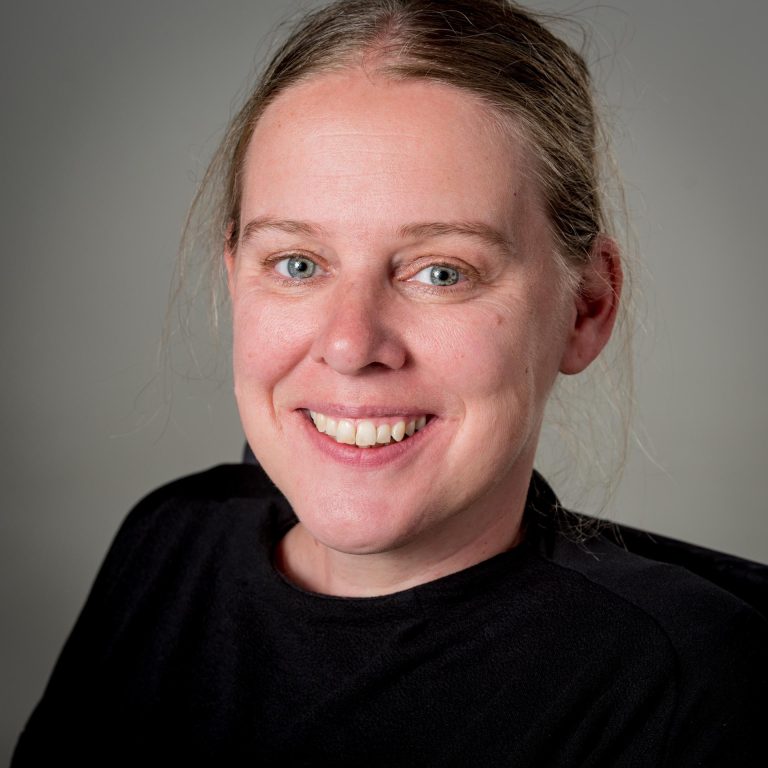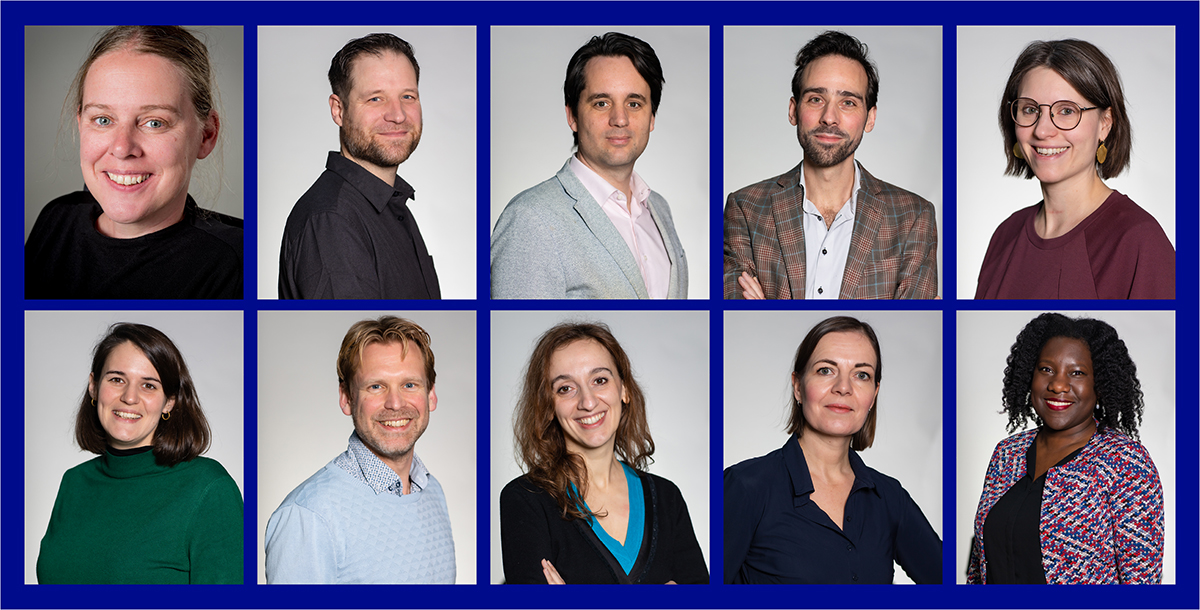University lecturer Bieke Cattoor (ABE) is one of 10 scientists installed as members of The Young Academy on Tuesday 28 April. What does this mean for her?
Bieke Cattoor (top left) is one of the ten new members of 'The Young Academy'. (Photo: KNAW)
During their five-year membership, members of ‘De Jonge Akademie’, the youth wing of the of the Royal Dutch Academy of Sciences KNAW, make a case for projects on science policy, interdisciplinarity, internationalisation and the relationship between science and society, the press release reveals.
 Bieke Cattoor looks forward to having short lines of communication with researchers from very different disciplines. (Photo: Fie Vandevin)
Bieke Cattoor looks forward to having short lines of communication with researchers from very different disciplines. (Photo: Fie Vandevin)How do you actually become a member of The Young Academy?
Dr Bieke Cattoor explains. “It has a step system. Rectors of universities and other scientific institutions draw up a list of new candidates every year. TU Delft is allowed to nominate four candidates each year, two women and two men. In total, this amounts to about a hundred candidates, from which 10 are chosen. The selection is not only based on your academic curriculum. As a candidate, you also submit a programme on what you want to do in the five years you are a member of The Young Academy.”
What is your programme?
“I am an Associate Professor of Landscape Architecture and Urban Planning at the Faculty of Architecture and Built Environment (ABE), which is primarily a design faculty. Over the next five years, I want to put design sciences on the agenda of DJA (‘De Jonge Akademie’, Eds.), because we desperately need design power in tackling complex societal challenges such as climate adaptation, biodiversity loss, and the organisation of healthcare. Design research develops knowledge and methods for multidisciplinary and integrated approaches to these transition issues. In addition, I have a second objective.”
And what is that?
“To promote diversity in science. I move around in a wheelchair and in general physical accessibility is well arranged. But implicit prejudices and ingrained exclusion mechanisms remain. For example, the University of the Netherlands recently issued a statement that everyone counts: ‘from professors to students, from PhD students to people with disabilities’. Not only is such a statement illogical as there are also PhD students and academics with disabilities, it is also denigrating.”
Does membership of The Young Academy help your research?
“My research focuses on landscape representations, which play an important role in rethinking and reshaping the world around us. For example, think about how maps systematise and hierarchise nature and culture, countryside and city. The underlying ideas continue for a long time. But making a separation between culture and nature is not at all productive. To increase the liveability of urban areas, it is better to intertwine our habitat with the habitat of non-human species. My research on landscape imagination is broad and I look forward to having short lines of communication with researchers from very different disciplines. In that context, it is promising that a very lively group has already emerged on Signal (a kind of WhatsApp, Eds.).”
- On Tuesday 28 March 2023, KNAW president Marileen Dogterom installed the 10 new members at a festive meeting at Amsterdam’s Trippenhuis. They are (from left to right in the picture): Bieke Cattoor (Landscape Architecture and Urban Planning, Delft University of Technology), Pieter Coppens (Islam studies, Vrije Universiteit Amsterdam), Scott Douglas (Public Administration, Utrecht University), Max van Duijn (Linguistics and Artificial Intelligence, Leiden University), Kristina Ganzinger (Physics of Cellular Interactions, AMOLF). And in the second row: Léonie de Jonge (European Politics and Society, Groningen University), Rogier Kievit (Developmental Neuroscience, Radboud University/Radboud UMC), Vasiliki Kosta (European Law, Leiden University), Ingrid Leijten (Constitutional Law, Tilburg University), Daphina Misiedjan (Human Rights and Environment, Erasmus University Rotterdam).
- In addition to Bieke Cattoor (ABE), DJA’s TU Delft delegation includes Cynthia Liem (EEMCS), Irene Dedoussi (AE) and Anton Akhmerov (TPM).
Do you have a question or comment about this article?
j.w.wassink@tudelft.nl


Comments are closed.